
My Opinion | Nov 02,2024
Jun 19 , 2021
By Tsegaab Teklu
Tsegaab Teklu is an enterprise performance management and data-driven leadership professional in the United States and is pursuing a doctoral program at Georgetown University. The opinions held here are that of the author and do not represent that of any organisation. He can be reached on Twitter at @tsegaab.
Ethiopia is at the advent of a historic election that could pave the way to genuine representative democracy. On the federal level, this election might go in the history books as the first election that allowed opposition parties to gain a meaningful number of seats in parliament. This could possibly start to change the legislative bodies from being a rubber stamp to the administration into becoming an accountability police. It could also further shape policies and laws to accommodate views that are different from those of the ruling party.
Systems that are deemed as democratic in the world are composed of varying degrees of democracies (rule by the people) and oligarchy (government by the few). Ethiopia to date had never implemented a good representative democracy on the ground beyond drafting it on the constitutional text. Ethiopia scored 22 out of a total of 100 points in Freedom House’s ‘Freedom in the World 2021' report. Though this low score implies a lot should be done, the 10 points gained compared to 2018 is encouraging. The post-President Mengistu and pre-2018 system of governance was competitive authoritarianism at best. It is yet to be written what the future holds.
‘Competitive authoritarianism’ is a system “in which the coexistence of meaningful democratic institutions and serious incumbent abuse yields electoral competition that is real but unfair,” as the Journal of Democracy defines it.
The EPRDF era built a hegemonic party system closest to a one-party state where elections were held on extremely uneven playing fields to deliver predictable results. It is a recent memory when opposition parties won only 2 of the 547 House of Peoples' Representatives seats during Prime Minister Meles’ last term and no seats during the last election. Any number of wins by the opposition parties in the upcoming election will be a change of course – a significant win will be a change of history.
The upcoming election is an opportunity to set the cornerstone for democratisation and democratic stability in Ethiopia. The democratisation process took major strides since the 2018 reforms by Prime Minister Abiy Ahmed (PhD). There have been visible improvements in opening up the political and media spaces. These steps were taken at a time when analysis by Varieties of Democracy (V-Dem), a leading measurement of democracy, announced that about a third of the global population is living in a declining democracy.
Unsurprisingly these changes happened without requiring major constitutional amendments, rather by improving the implementation of the constitutional text. This raised one of the topics debated in the Ethiopian political space because of its chicken-and-egg nature. While some argue that the existing constitution is rigged to favour hegemonic parties and should be amended before any elections take place, others argue that any thought of constitutional amendment should be done under a democratically elected government. Whether or not pushing for major constitutional amendments will be among the priorities of the upcoming government is yet to be seen.
Instrumental amendments and policies that aim at significantly enhancing the democratisation process are essential for democratic stability. The latter has to do with ensuring the continuity of the growth of democracy. A perfect democracy and a perfect union are rather unlikely to be achieved in a single election in any nation because of the presence of competing interests. All advanced democracies of the world are built over generations. A democratic system that stands on stable ground constantly brings about improvements over time. On the flip side, an unstable democracy is always at risk of an authoritarian or oligarchy hostile takeover.
Given the fact that the current representation model in Ethiopia is a parliamentary framework, it inherently aims at bringing together the various factions in the nation. A similar model works in some of the major democracies of the world including England and Israel. A major criticism of this model’s application in Ethiopia is its use of ethnicity as the primary way of political organisation and federal construct.
The ideological alignment of the competing political parties however takes two organisational models of either following the representation model along ethnic lines or along ideologies with nationwide applicability. The outcome of the election in areas where there is strong competition, fair information flow, and minimal election irregularities might indicate where the public’s interest is at.
It is the hope of many that the upcoming election will end up as the start of the many democratic elections to come in Ethiopia. The road to this election was not perfect, rather thus far there are many encouraging signs that were never part of previous Ethiopian elections. Though striving for perfection is essential, it is also important to keep in mind that building a democratic system is a process rather than a one-time event. In addition to free and fair elections, the building blocks of a strong democracy include enhancing freedom of expression, levelling the ground for alternative sources of information, and progress in personal and group rights.
In a nation that houses numerous views and definitions of identity, a single election will not solve everything. Rather, a better system can be built starting with a fundamental change of respecting citizen’s votes and incremental changes over time.
“One election won't make everything perfect—but it could make things better. And that's why it’s worth taking a few minutes to vote," as former US President Barack Obama once said.
PUBLISHED ON
Jun 19,2021 [ VOL
22 , NO
1103]
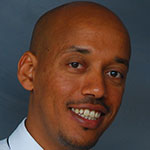

My Opinion | Nov 02,2024

View From Arada | Aug 13,2022
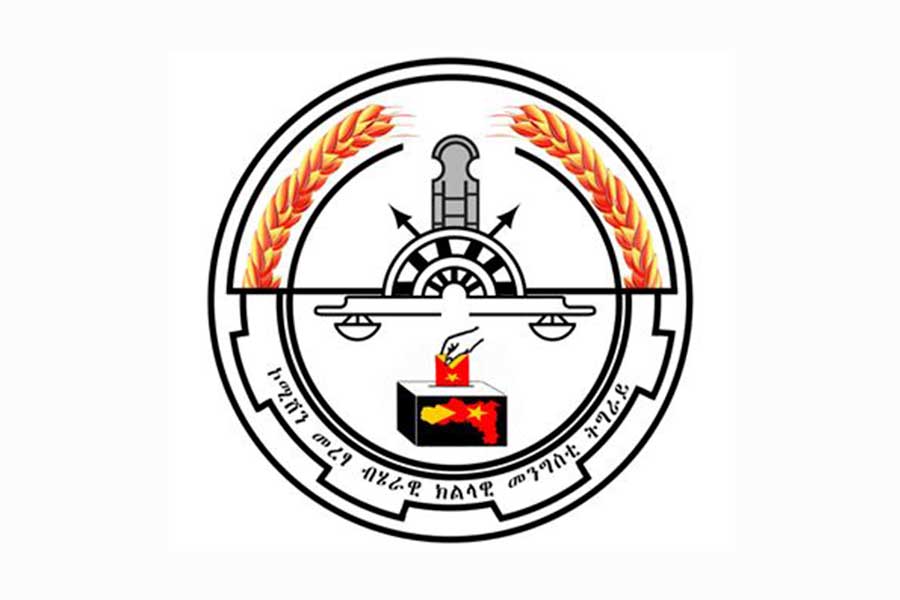
Fortune News | Aug 01,2020

Commentaries | Sep 08,2024

Verbatim | Apr 13,2019
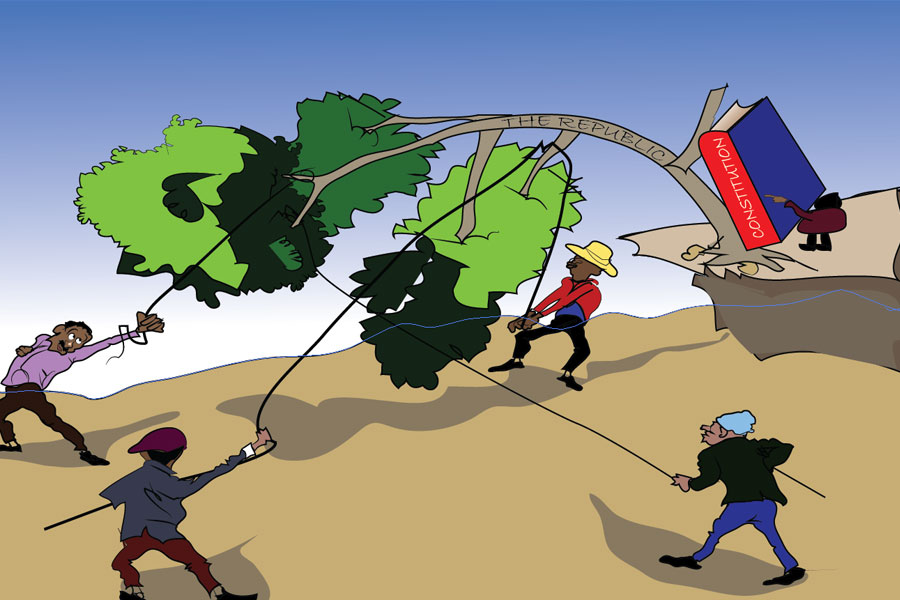
Editorial | Jan 05,2019

Radar | Jul 18,2020
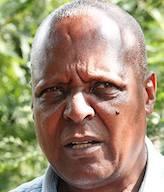
Verbatim | Jun 29,2019

Sunday with Eden | Jul 30,2022

Editorial | Mar 27,2021

Photo Gallery | 156352 Views | May 06,2019

Photo Gallery | 146638 Views | Apr 26,2019

My Opinion | 135234 Views | Aug 14,2021

Photo Gallery | 135155 Views | Oct 06,2021

Dec 22 , 2024 . By TIZITA SHEWAFERAW
Charged with transforming colossal state-owned enterprises into modern and competitiv...

Aug 18 , 2024 . By AKSAH ITALO
Although predictable Yonas Zerihun's job in the ride-hailing service is not immune to...

Jul 28 , 2024 . By TIZITA SHEWAFERAW
Unhabitual, perhaps too many, Samuel Gebreyohannes, 38, used to occasionally enjoy a couple of beers at breakfast. However, he recently swit...

Jul 13 , 2024 . By AKSAH ITALO
Investors who rely on tractors, trucks, and field vehicles for commuting, transporting commodities, and f...

Sep 13 , 2025
At its launch in Nairobi two years ago, the Africa Climate Summit was billed as the f...

Sep 6 , 2025
The dawn of a new year is more than a simple turning of the calendar. It is a moment...

Aug 30 , 2025
For Germans, Otto von Bismarck is first remembered as the architect of a unified nati...

Aug 23 , 2025
Banks have a new obsession. After decades chasing deposits and, more recently, digita...
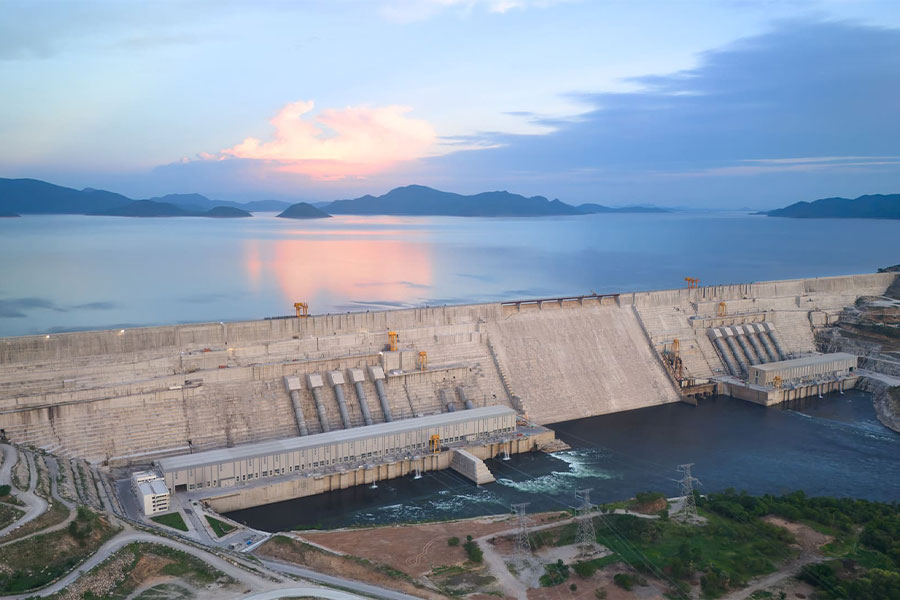
Sep 15 , 2025 . By AMANUEL BEKELE
The Grand Ethiopian Renaissance Dam (GERD), Africa's largest hydroelectric power proj...

Sep 13 , 2025
The initial budget in 2011 was 80 billion Br, but this figure swelled to a revised cost of 240 billion Br by 2024, a challenge that was exac...

Banks are facing growing pressure to make sustainability central to their operations as regulators and in...

Sep 15 , 2025 . By YITBAREK GETACHEW
The Addis Abeba City Cabinet has enacted a landmark reform to its long-contentious setback regulations, a...